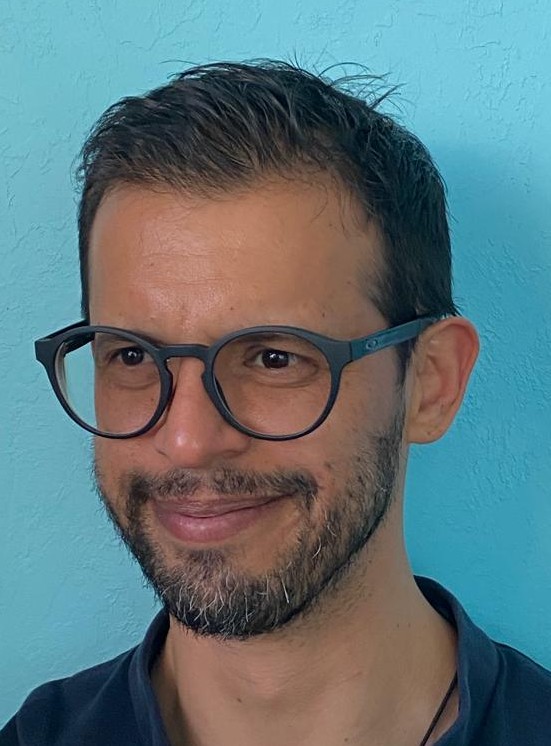State School Innovator Voice 3
Charlie Moreno-Romero – Head of Studies in a Democratic Branch of a State School

Originally from Colombia, Charlie has 18 years’ experience working in state, private and international schools and universities. His academic background is in philology (BA – Colombia), anthropology (MA – Estonia) and education (PhD – Spain). These latter studies focused on education for/in social justice and inclusion, and introduced him to the democratic education movement.
In 2019 Charlie united the support of parents and a school leader to open Suvemäe-TKG, which is a democratic education-based branch within a state school (Art Gymnasium) in Tallinn, Estonia.
Suvemäe is a pilot project serving around 70 children and families, and Charlie has worked as the general coordinator there ever since.
What does your job at Suvemäe involve?
I am in charge of designing the school timetable, meeting the new families, compiling official documentation on learning activities, collaboratively arranging all academic and vocational learning possibilities with colleagues and students.
How is Suvemäe different to conventional schools?
We consider that young people have the right to control their learning and have enough time to engage in activities of importance to them. Our school timetable is divided in a way that there is a lot of free time and unstructured activities for young people to decide what to do.
Children from 1-4 classes (7-10 years) have around 50% of the school time for their interests, 5-6 classes (11-12 years) around 40%, and 7-9 classes (13-15 years) around 30%. The older the students are, the more official academic requirements they have.
During the semi-structured workshops on academic subjects, we focus on the development of learning and executive skills, instead of the content set in the curriculum.
At the same time, we make decisions with students about topics of importance to them, from learning arrangements, to clubs and workshops, to events involving guests or projects funded by our NGO.
We also have a well-designed and functional MC (mediation circle) where 5 young people and an adult help others solve their conflicts.
Finally, our school offers plenty of possibilities for young people to share with older and younger learners (age mixing) and free play experiences.
Why are you interested in progressive education?
The conventional school system was born in Prussia to serve a very hierarchical society, that’s why it worked so well during the industrial revolution times. Nowadays, we have different and more complex challenges at social, political and environmental levels, which demand pedagogical efforts towards helping young people develop critical and divergent thinking, social skills, emotional balance, metacognition. We are interested in supporting young people’s holistic development within a framework of environmental responsibility, rather than focusing on memorization, consumerism and obedience.
In your opinion what are the main challenges of our current state school system?
It has been normalized. Only few people question the fact that we continue separating children according to their ages, filling their days with endless amounts of information that are not related to their lives or whatever they will need in the future. If we were more aware of the origins of conventional schooling, we would be concerned about the lack of wellbeing, initiative and creativity in our young people, reflected in their dependence to electronic entertainment, limited communicative skills, and fragile emotional resilience.
I very much suggest two readings to understand the non-sense of what we call “conventional schooling”: John Gatto’s “Dumbing us down” and Melton’s “Absolutism and the Eighteenth-century origins of compulsory schooling in Prussia and Austria”.
If you could make changes to the state education system, what would be your top priorities?
- Push forward the 20% proposal where young people can enjoy 20% of the timetable to learn whatever they want.
- More conflict resolution mechanisms based on restorative justice, rather than punitive justice.
- Embrace phenomenon and project-based learning, which can promote the development of executive skills in children and young people.
- Provide enough training for adults on non-violent communication and possibilities for young people to express themselves without judgement.
Do you have any advice for other schools in terms of implementing progressive practices within the state system?
Find key partners both in academy, state institutions and civil society. The key word here is “compromise”: how to develop a pedagogical environment that honours states requirements while providing enough time and space for young people to ask their answers. Progressive educators and directors are necessary to create hubs of innovation or, as Derry Hannam puts it, “pioneers of possibilities”.
Families need to become familiarized with the research available in order to face their fears. The school rules need to be created collectively with students and families in order to promote a sense of belonging and commitment towards the project.
Finally, progressive education needs to be available for those families and children who are interested, no matter their economic status.
Is there anything else you’d like to add?
We need more alternatives to conventional schooling, but this happens when people get together and build such alternatives together. This takes time and courage!
More About Suvemäe
Facebook: @suvemaetkg
Photo library: https://drive.google.com/drive/folders/1gKu_YumF9fcxovmK_UcodG1eQuDB2h6p?usp=sharing
Webinar on ‘How to transform the culture of your classroom by enabling student participation’: In this event hosted by Progressive Education Founder, Jo Symes, Charlie describes the philosophy of Suvemäe. Other panelists include former Ofsted schools’ inspector, Derry Hannam, youth rights advocate, Richard Fransham, and author and former educational psychologist, Geraldine Rowe:

